Former high school principal, Jihad Dib shares his take on changing mindsets to build a culture of inclusion. He challenges teachers to consider the impact they can have by crafting inclusive school cultures day-by-day. Jihad, now a MP in the NSW Parliament, makes a case for a culture where everyone belongs, is good at something, is treated equally, there are high expectations and where students are taught together, with discreet support, in regular classrooms.
This transcript has been corrected and edited slightly for clarity.
I’m a big believer in inclusive education. When I went to school I couldn’t speak English. It could have been very easy for me to be stuck in an ESL class for the rest of my life. It could’ve been very easy for me to be labelled.
I wasn’t. I was given opportunity and that’s what’s beautiful about our education system, especially our public education system.
We’ve got all these parameters and all the frameworks but what you can’t do is you can’t force a mindset, but you can change a mindset and once our mindset is actually about the first principles of education, which is that every single person deserves the very best and the opportunity and the support, then we are on the right track.
[When I was a Principal] we had a sign on every single classroom door; “Welcome. Through this door walk our future creative thinkers, problem solvers and innovators.” Let’s show students what they can do, let’s show every kid what they can do. Let’s celebrate it! We took photos and put the photos of the kids up all over the school doing things, so they could actually see that what they were doing was really good. This idea of everybody belonging was really, really important and making sure that that mindset changed, not only with the teachers but also with the kids.
I had kids who would come up to me and say, “Sir, I’m dumb.” “Sir, I’m going to be hopeless. I’m not going to go to Uni; I’m not going to go to Tech. I’m going to drop out.” That was actually the attitude of these kids who saw me in the playground, and basically–I won’t use the language that they used–but basically they would say, “This school is a ‘such-and such’ school.”
Why was I there and why did I get up on assembly and say that it was going to be a great school? You know, like I’m crazy.
This one kid, he didn’t hold back, which was really nice, but I remember telling him that I didn’t believe it was a ‘’such-and-such’ school and that he could be something if he really wanted to be, but he had to work hard. He said, “Sir, we’re dumb. I wasn’t born in Australia. We don’t belong here.” That told me the attitude that the kids had of themselves and of education.
Fast forward a few years. That kid ended up becoming a school teacher and then what is even better–and this gives me the tingles–he actually became a teacher at our school. That’s a true story and that’s the power of education. That’s the power of creating an inclusive education system. He worked as a casual, he had an opportunity to get a full-time job somewhere else, but he came back as a casual and when I said to him, “Mate, you know, you’ve got a full-time chance …” “Sir,” he said–the kids still call me sir and I still call their teachers sir, that’s just out of respect–“You made me believe. I need to make other kids believe that they can be better than what people think they are” That’s like, that’s the stuff that brings tears to your eyes, but that’s the stuff that actually motivates you. That’s the stuff that inspires you and that’s what belonging is.
I tell teachers, “I want you to stand out front of the class and I want you to welcome the kids because you set the weather. If you’re in a grumpy mood, don’t come and complain to me when the kids muck up.” If you welcome the kids, then it makes a change. Everybody’s good at something and I talk about that in the sense of inclusive education all of the time.
Every single person in the world has some talent. Some are lucky because they’ve got a little bit more talent than others, but everybody does have a talent and we just need to, as educators, find that talent because the best thing you can do in education is give a student confidence to be able to see themselves as a success. It doesn’t mean that you’re successful because you get 80-90 per cent in an examination. It means you’re successful because you’re a contributor. It means you’re successful because you actually make a positive change to the school. It means that you’re a success because you represent the school in a good way. It means you’re a success because you saw somebody getting teased and you stood up for that kid. That’s what success is. Everybody’s got it. But when you give someone a pat on the back, what a difference it makes.
We’re really good in schools at finding kids doing the wrong thing. We’re really good at it, probably too good. So, I put the challenge out to the teachers and the saying was, ‘We’re going to catch students doing the right thing’ because that’s going to be a change. I don’t mind if the kid does the wrong thing, you pick them up, go through the discipline process and all that, that’s not a problem, that’s the thing you’ve got to do, you’ve got to have your rules but by the same token I also want to make sure that we acknowledge a student for the successes. If we start to find them doing the right thing, that will make a big difference.
The really great thing from an education perspective was if I had a student pulled up into my office they would know that it wasn’t me. Kids will go, “Oh, you’re picking on me, Sir. They pick on me. They don’t like me.” I go, “Mate, they’re not picking on you. They picked up on you doing the wrong thing. But tell me, have they ever told you you’ve done something good?” And that was really powerful because then what did the kids see? That there’s an element of fairness in this, and kids really love fairness and I treated all the kids the same.
Once we start putting kids into boxes and we start to differentiate too much that’s when what we are actually doing is saying, “We have a different expectation of you than we do of this person.” And when we do that, people can start taking advantage of that but it also creates a resentment within the students. Students are a heck smarter than we give them credit for. They are much more insightful than we give them credit for. They don’t care if a kid’s got, whether it’s a physical disability, an emotional disability, an intellectual disability, whether a kid’s got different colour hair–we had kids who had all sorts of things that would make them potentially different–but if we started to identify them as different, then they were different. All we did was say that whole part about school family and that we needed to treat them and expect the same of them as we would for anybody else. You raise the expectations. You know what you want, and the kids will get to that point; and you’re realistic, that’s, I think, the important thing. So we modify but we don’t dumb-down and I think that’s a really important thing.
Sometimes people mistake modification of what they’re teaching for dumbing down. If we’re dumbing down then we’re selling the kids short and we can’t do that.
But do we need to modify? Absolutely.
Sometimes we need to modify for a kid whose got a visual impairment. But what do you do? I mean, I remember we had a boy who had a visual impairment and the teacher thought this would really help him–which was very nice–when he went to do an exam; they had made on a big A3 piece of paper. Everyone else had an A4 piece of paper. I just got a little, “I think it’s really nice what you’ve done, but maybe just put it on A4 paper” You know, it doesn’t matter if his exam is 40 pages long but it will make him feel like he’s the same as everybody else. I don’t want other kids looking at him saying, ‘Oh, he’s different.’
When you keep saying people are different, you actually inadvertently create the barriers you don’t want. We provided discrete support and part of the discrete support would be having, say, an assistant teacher, a teachers’ aid that came in with some work that that was slightly modified, but kind of incorporated. The kids knew who was getting support, but they didn’t just, they didn’t [inaudible] the others.
We need to be really careful that we don’t label kids or that we don’t judge kids because of the way they present themselves.
Omar was one of those real tough kids. You know, he was the guy who was always getting himself into trouble. He’d walk around the playground like he was the ants pants. I always actually really liked Omar. I really liked him because I liked that he had a bit of personality, he had a bit of oomph to him and he was actually a really lovely kid. What I discovered about Omar was that he would actually look after his unwell mother and he’d look after his brothers and his sisters and he would leave school to start work at the local fruit shop. So, all this big, tough bravado, and he was actually like the softest kid you could imagine. But Omar used to get himself into trouble a lot and I suspected that he had real reading difficulties but because of his attitude he’d try and get out of it. Then one day we were having a chat, waiting for the bus, and I just said to him, “You know, you’re a top kid but not everyone knows that.” I said, “Mate, people look at you and think that you’re something different but I know you’re just this great kid,” and he sort of confided in me, a few things. I said, “I think you get yourself in trouble because you’re trying to hide the fact you don’t know how to read properly.” “I know how to read, Sir; I know how to read. What are you saying, I’m dumb?” “No, no, no, no, no. Not at all. I’ve never said that you’re dumb.” “Sir, see, I can read. Have a look over there,” and he pointed across the road. “See, It says ‘chemist’s”. It didn’t say chemist’s; it actually said pharmacy. I said to him, “Mate, tomorrow we’re going to have to do some work on it. You’re right; it’s a chemist, but it actually says pharmacy” That was how he had managed to get through for a long time and a lot of people hadn’t picked up on it. So then we had to work out how to help this kid without embarrassing him. This is like the big, tough kid in the school. Can you imagine the teacher walking up saying, “Hey, Omar, I want you to come to the separate class.” Can you imagine that? So, we had to kind of find a real surreptitious way of being able to help him out and that’s why some of the teachers helped out after school. We had some discrete support within the classroom. We modified some of the work without him being embarrassed, because there is a huge embarrassment thing, that was his whole idea to deflect by getting into trouble. Anyway, he went on–those were the days when you could leave at the end of UT– he ended up leaving and becoming an apprentice. And then I saw him–I still see the boys around all the time–and he had finished his apprenticeship as a carpenter and you know, we were talking about that and he says, “Sir, I really struggled at [inaudible]” and what I discovered was that some of the teachers were still helping out. Some of our teachers, after school helping him out with his reading and stuff. Had we given up on that kid, had we just thought, “This is a naughty kid” goodness knows where he would’ve been. Whereas now he’s on the right trajectory and that’s a really important thing.
The thing we do as educators, more than anything else, is that we actually teach students without realising that we’re teaching them, and what we’re teaching them is not necessarily always through a chalkboard or interactive white board, it’s actually through the way we are, the way that we make them feel. I never saw kids teasing other kids because of a disability or because they were different. They knew the lines between what was right and what was wrong. I saw kids being teased, you know like having a bit of a laugh, but they would never cross that line to a kid being picked on because they were different and that’s only because it was such a strong inclusive school culture. You couldn’t have that if it wasn’t the case, you know. Kids also look out for each other, they really do but again, it comes down to that whole idea of the culture when that attitude permeates from the leadership through to the teachers, to the kids; the school community sees it. When this attitude comes through, and it came through every single thing that we talked about, the kids start believing in it and that is incredibly powerful, because that’s how you change a community.
That’s the power of education. That’s the power of believing in the inclusive education. That’s the power of believing that every single person has something good in them, that every single person deserves an opportunity.
- Seven pillars of support for inclusive education. Moving from “why?” To “how?” International Journal of Whole Schooling, 3(2), 22–38. Loreman, T. (2007).
- Teachers are custodians of Inclusion, Catia Malaquias
- What is the recipe for Inclusive Schooling Success? – Loren Swancutt, Loren is a passionate, inclusive educator and leader who is committed to advancing the realisation of inclusive schooling within the Australian context. Here she highlights the importance of acknowledging and building strong culture, purpose and belonging as underlying constructs in preparation for Inclusive schooling success
ALSO IN THIS SECTION:

Who Is Responsible for Teaching Children with Disability? Gina Wilson-Burns, Loren Swancutt and Dr. Simona D’Alessio
MORE ACCESS TALKS:
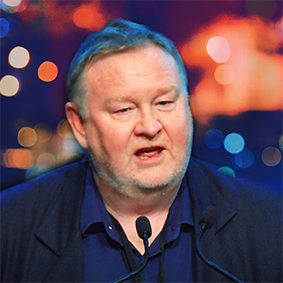
WHAT IS INCLUSION
The promotion, adoption and implementation of inclusive practices, which involves changing policies, practices and attitudes within schools.
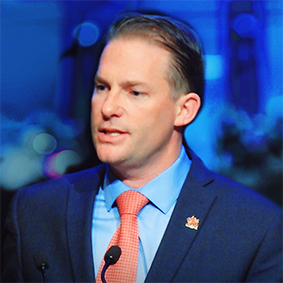
HOW WE INCLUDE
Creating inclusive classrooms & schools starts with vision, policy, systems change, curriculum design and teaching practice.
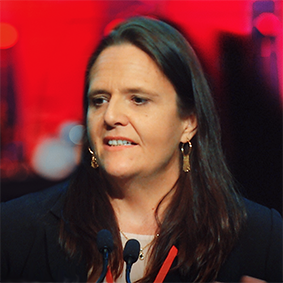
WHY INCLUDE
High quality education & supports enable all students to acquire success in their education and is the basis of an inclusive life and society.
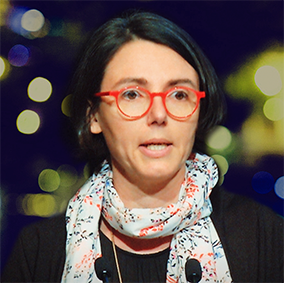
AUSTRALIAN EXPERIENCE
Exemplar inclusive educational practices are happening in Australia. See the possibility and potential of inclusion here and now.
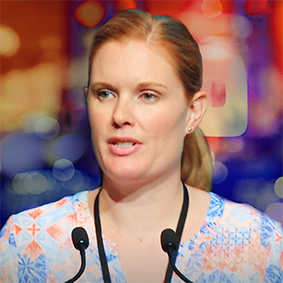
CHANGING MINDSETS
Whole school transformation requires courage, leadership and honest reflection to identify the need for change and set about making it happen.
NOW EXPLORE ACCESS READS
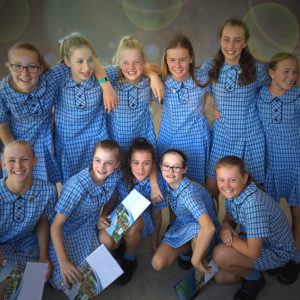
WHAT IS INCLUSION
The promotion, adoption and implementation of inclusive practices, which involves changing policies, practices and attitudes within schools.
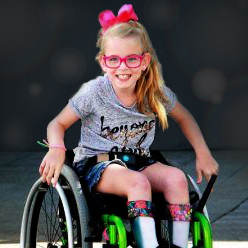
HOW WE INCLUDE
Inclusive classrooms and schools embrace universal design as the foundation for cultivating inclusive attitudes and practices.

CHANGING MINDSETS
Bringing about change one mind at a time is integral to improving the lives of people with disability.
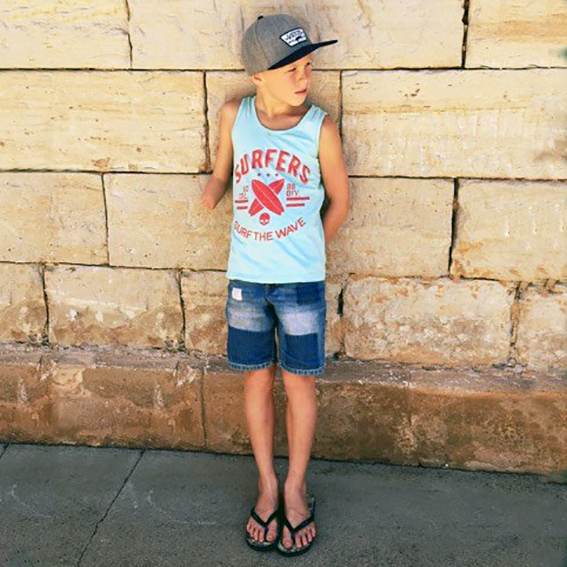
AUSTRALIAN EXPERIENCE
Exemplar inclusive educational practices are happening in Australia. See the possibility and potential of Inclusion here and now.
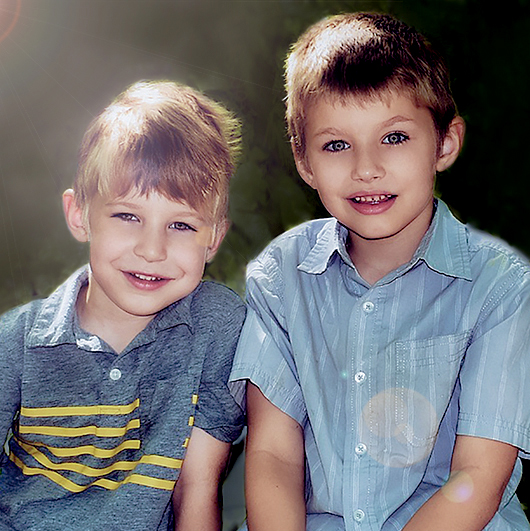
WHY INCLUDE
All children have the right to be included, to be represented in, to have access to and to receive high-quality education and supports.
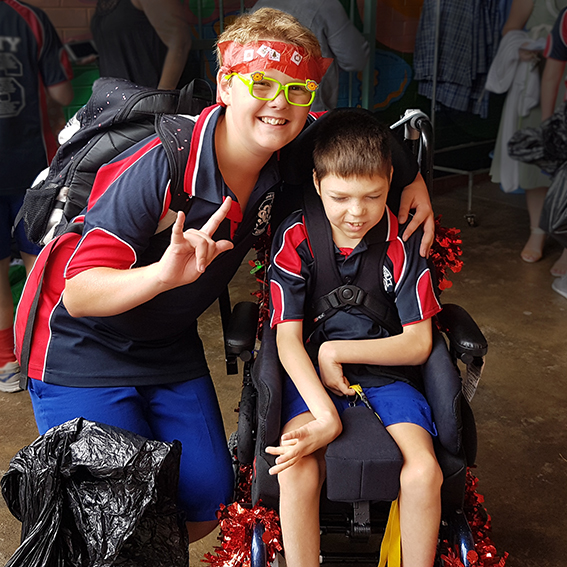
TEACHER IMPACT
All classroom teachers have a role in creating schools & learning environments where all children can learn and feel they belong.
A FAMILY ADVOCACY INITIATIVE
This site is edited and maintained by the Advocacy and Leadership Development team.
Image attributions: photos supplied. Screenshots from Access Symposium videos.


